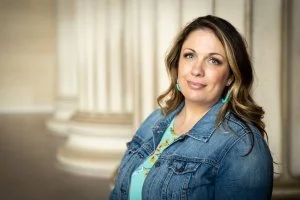I was never a Ronald Reagan fan, but — let’s face it — he would have to rank No. 1 among American politicians when it comes to having the “gift of gab.”
Thus, with a tip of the hat to the Gipper, let me make this observation: You know that there are church-state experts — on the new illiberal side (cheering) and on the old-liberal side (groaning) — who are watching recent events in Colorado and saying, “There you go again.”
This brings us to this long, long, wordy headline from The Denver Post that served as the hook for this week’s “Crossroads” podcast (CLICK HERE to tune that in). Read this one carefully:
Denver Archdiocese sues Colorado over right to exclude LGBTQ people from universal preschool
State’s non-discrimination requirements “directly conflict with St. Mary’s, St. Bernadette’s, and the Archdiocese’s religious beliefs,” the lawsuit says.
The Post team has, naturally, framed this case in precisely the manner chosen by Colorado officials, while paying as little attention as possible to recent decisions made by the (#triggerwarning) U.S. Supreme Court.
In particular, journalists may want to look at that recent decision — Carson v. Makin. The key: The high court addressed the state of Maine’s attempts to give public funds to parents who sent their children to secular or religiously progressive PRIVATE schools, but not to parents who picked private schools that support centuries of Christian doctrines on marriage and sex (and other hot-button topics, such as salvation, heaven and hell).
Now, back to the Denver Post:
The Denver Catholic Archdiocese along with two of its parishes is suing the state alleging their First Amendment rights are violated because their desire to exclude LGBTQ parents, staff and kids from Archdiocesan preschools keeps them from participating in Colorado’s new universal preschool program.
The program is intended to provide every child 15 hours per week of state-funded preschool in the year before they are eligible for kindergarten. To be eligible, though, schools must meet the state’s non-discrimination requirements.










